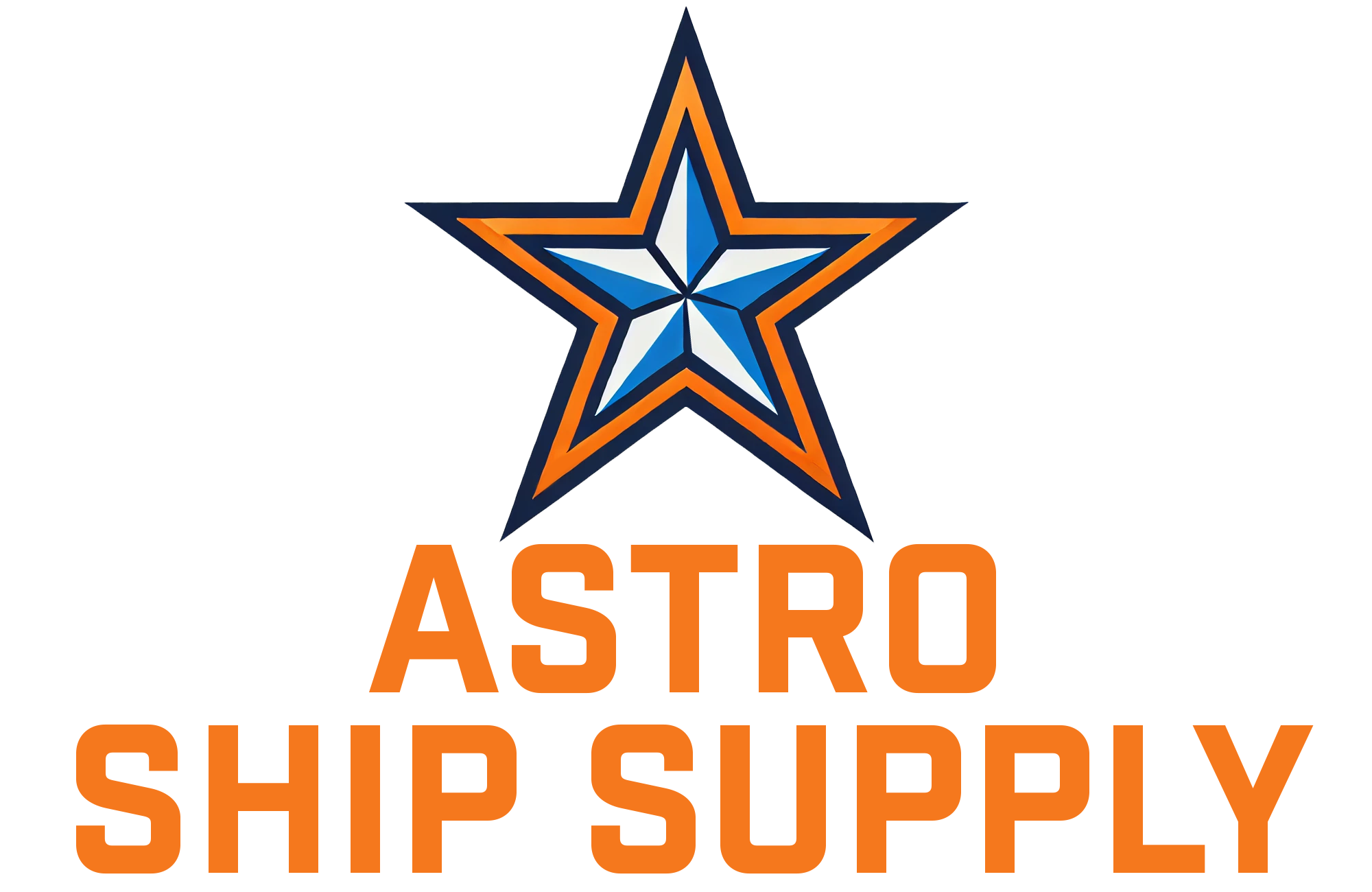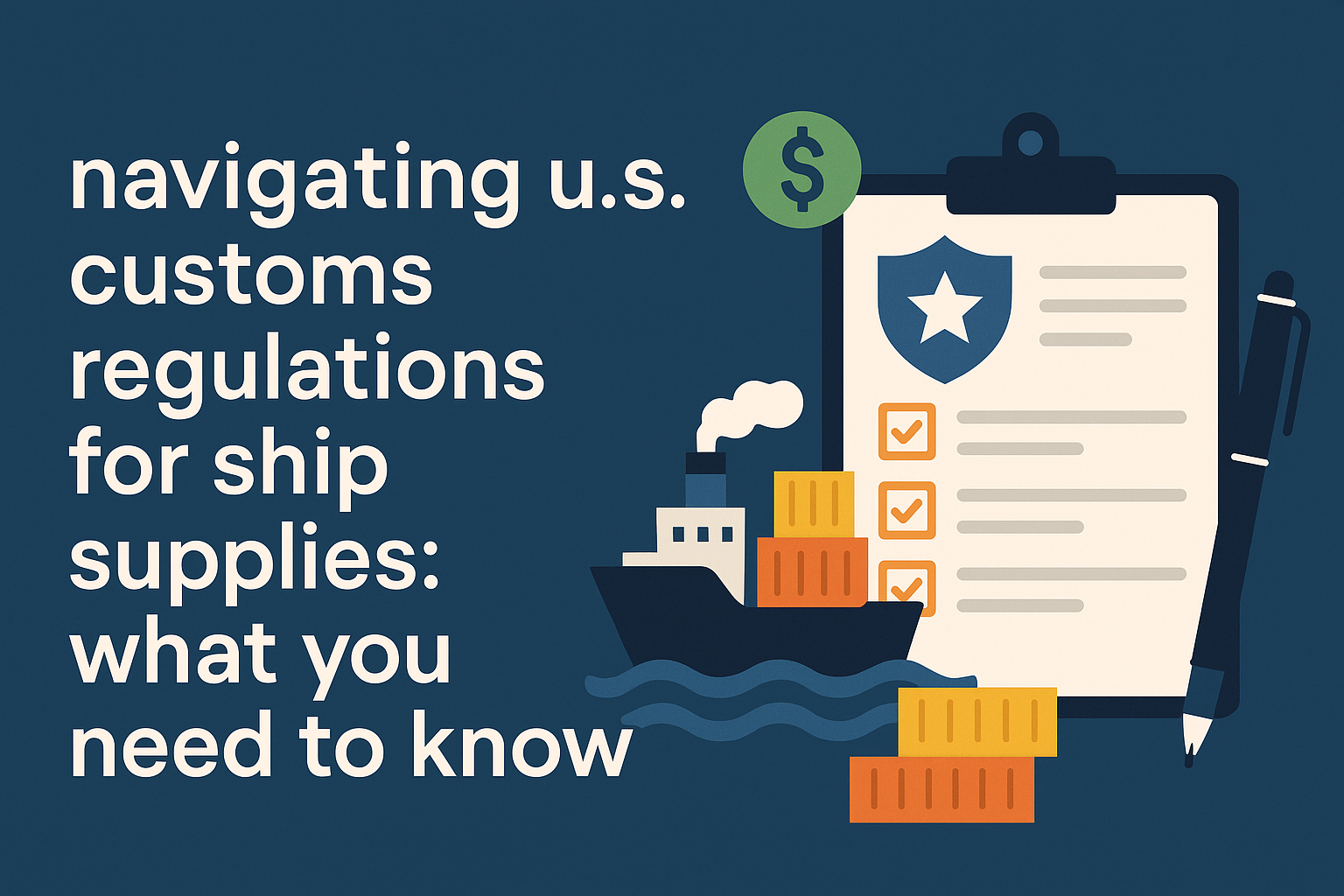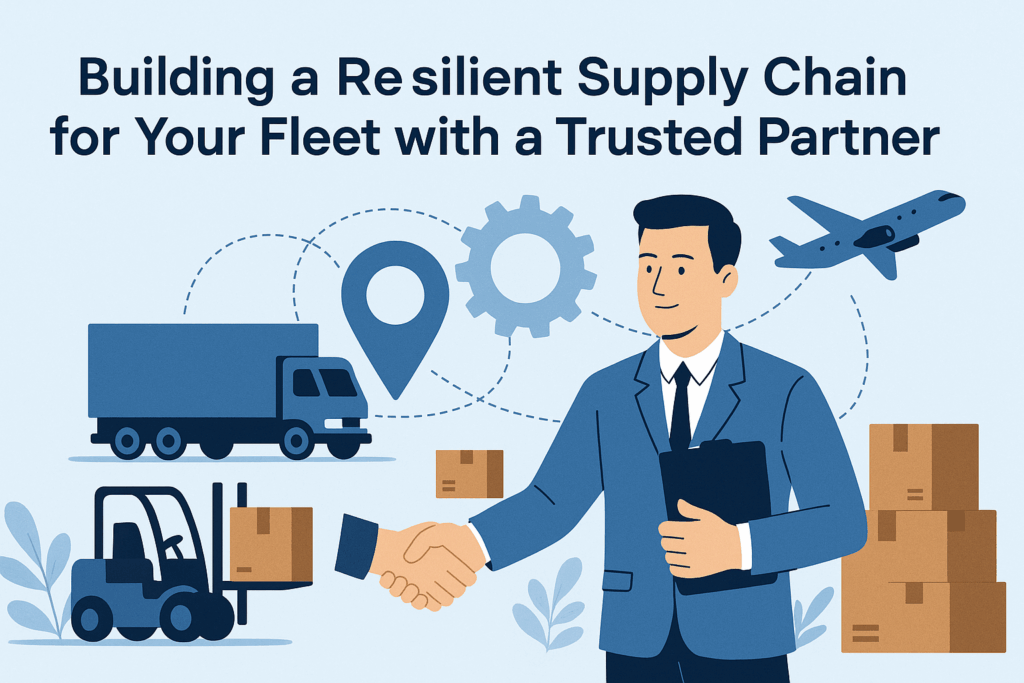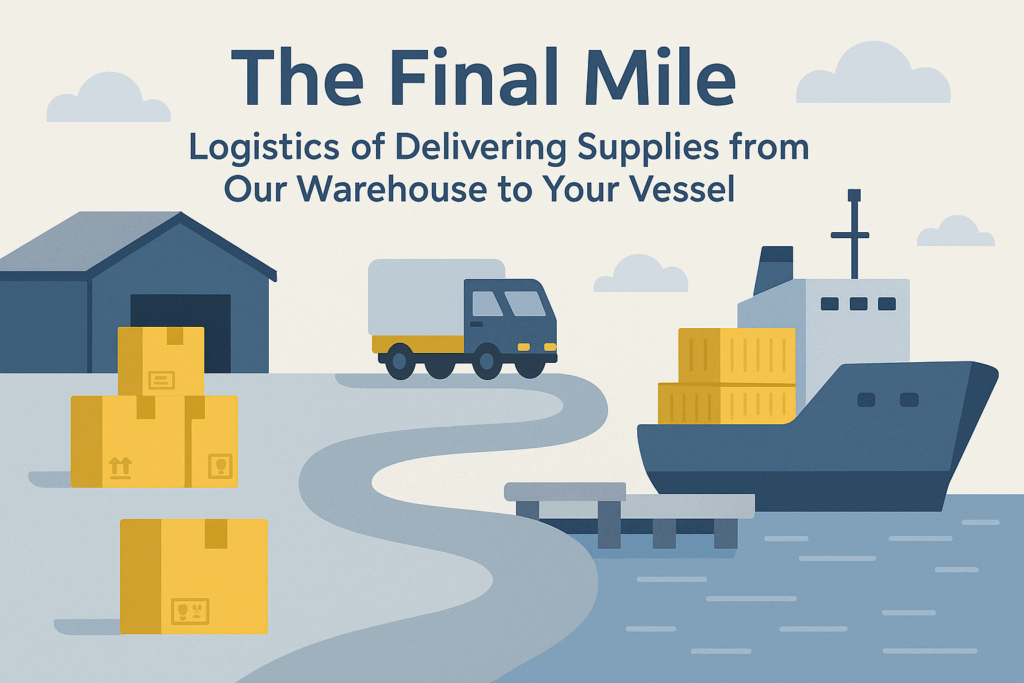Anchored by Paperwork? Mastering U.S. Customs for Seamless Ship Supply
In the fast-paced world of maritime commerce, a vessel fully stocked with provisions, spares, and essential stores is only truly ready for its next voyage once it has cleared all regulatory hurdles. Among the most critical of these is navigating the intricate web of U.S. Customs and Border Protection (CBP) regulations. For vessels calling on U.S. ports like Houston or others along the Gulf Coast, meticulous compliance isn’t just advisable—it’s mandatory. Failure to meet CBP requirements for ship supplies can lead to costly delays, hefty penalties, seizure of goods, and significant operational disruptions. Understanding these regulations and partnering with a knowledgeable ship chandler like Astro Ship Supply, who prioritizes customs compliance, is paramount for smooth, efficient, and lawful operations.
This guide aims to demystify the key aspects of U.S. customs regulations as they pertain to ship supplies, offering insights for vessel operators, masters, and crew to better prepare for arrival and departure from U.S. waters.
The CBP Mandate: Why Ship Supplies Are Under Scrutiny
Understanding the role of CBP is the first step in appreciating the importance of compliance.
H3: CBP’s Mission and Maritime Oversight
U.S. Customs and Border Protection, a component of the Department of Homeland Security, has a multifaceted mission that includes:
- Preventing the entry of illegal goods and contraband: This includes narcotics, weapons, and items that could pose a threat to national security or public health.
- Facilitating lawful trade and travel: Ensuring that legitimate cargo and persons can move efficiently across borders.
- Enforcing U.S. trade laws and collecting revenue: This involves the assessment and collection of duties, taxes, and fees on imported goods.
- Protecting U.S. agriculture: In conjunction with agencies like the U.S. Department of Agriculture (USDA) and the Food and Drug Administration (FDA), CBP helps prevent the introduction of foreign pests and diseases through regulated goods, including certain food provisions.
Ship supplies, due to their nature and the international movement of vessels, fall directly under this scrutiny. Accurate declaration and control are essential to CBP’s mission.
H3: Key Regulatory Resources
The primary source for regulations is the official CBP website, which provides access to forms, directives, and guidance documents. Title 19 of the Code of Federal Regulations (19 CFR) contains the specific customs duties laws. For provisions, guidelines from the FDA and USDA are also critical.
Classifying Ship Supplies: Customs Implications Unveiled
Different types of ship supplies have distinct customs treatments. Understanding these categories is vital for correct declaration.
H3: Ship’s Stores (General Use Supplies)
These are articles necessary for the operation of the vessel, including deck, engine, and cabin supplies (e.g., ropes, tools, cleaning materials, stationery). Generally, these are considered “consumed” onboard. They must be declared upon arrival, typically using CBP Form 1303: Ship’s Stores Declaration, or as part of the vessel’s general declaration. The key is ensuring quantities accurately reflect what’s onboard.
H3: Provisions (Food, Beverages, and Catering Supplies)
Provisions for the crew and passengers are also declared. Special attention is paid to:
- Origin of food products: Certain meat, poultry, dairy, and plant products from specific countries may be restricted or require special permits to prevent the introduction of pests or diseases (USDA/APHIS regulations).
- Sealed vs. Unsealed provisions: CBP officers may inspect galleys and storerooms to ensure compliance.
- Quantities: Must be reasonable for the voyage length and crew size.
Partnering with a chandler like Astro Ship Supply, who understands HACCP and food safety standards, also helps ensure that provisions meet U.S. health requirements, indirectly supporting smoother customs processes.
H3: Bonded Stores (Duty-Free Goods)
“Bonded stores” or “sea stores” refer to items like tobacco products, alcoholic beverages, and sometimes luxury goods, which are sold or consumed onboard duty-free. These are subject to very strict CBP control:
- Declaration: Must be declared accurately on arrival (often on CBP Form 1303 or a dedicated manifest).
- Sealing: While in U.S. territorial waters (typically within 3 or 12 nautical miles, depending on the context), bonded stores must usually be kept under CBP seal or secured in a locked compartment to prevent unauthorized access or consumption by non-crew members or landing ashore without duty payment.
- Verification: CBP officers have the right to inspect bonded store lockers and verify seals and quantities against declarations.
Discrepancies or broken seals without proper authorization can lead to severe penalties. Our bonded stores service ensures proper handling and documentation guidance.
H3: Spare Parts and Technical Supplies
Spare parts for the vessel’s machinery and equipment (deck & engine supplies) must also be declared. Key considerations include:
- “Vessel Repair” Entries: If parts are imported for installation on a U.S.-flagged vessel or for repairs performed in a U.S. port that may be dutiable, specific entry procedures (e.g., vessel repair declaration, CBP Form 226) apply.
- “In-Transit” Spares: Parts arriving for a foreign vessel for installation onboard while in U.S. waters are generally not dutiable if they depart with the vessel and are properly documented.
- Landed Spares: If a part is landed ashore for repair or other reasons, it may be subject to import duties and formal entry procedures.
The Declaration Maze: A Simplified Procedural Overview
While the ship’s agent typically handles the formal submission of most customs documents, the Master and crew are responsible for the accuracy of the information provided.
H3: Essential Documentation for Ship Supplies
Accurate and complete documentation is the cornerstone of customs compliance. Key documents include:
- CBP Form 1303 (Ship’s Stores Declaration): Often used to declare ship’s stores, including bonded items, narcotics, and arms/ammunition onboard. Alternatively, some ports accept an IMO General Declaration (FAL Form 1) with detailed manifests.
- Supplier Invoices & Packing Lists: For supplies taken onboard in the U.S. port, clear invoices from the chandler detailing items, quantities, and values are essential for CBP verification and the vessel’s records.
- Crew’s Effects Declaration (CBP Form 5129): Individual declarations by crew members for their personal belongings.
- Narcotics List: If the vessel carries controlled medical narcotics, a detailed list must be provided and kept secure.
H3: Filing Procedures and the Critical Role of Accuracy
Declarations are typically submitted to CBP upon arrival in a U.S. port, often electronically through the vessel agent. Accuracy is paramount. Discrepancies between declared quantities and actual onboard stores, or failure to declare items, can trigger intensive inspections and penalties. Timeliness is also crucial; late declarations can delay vessel clearance.
H3: How Your Chandler Supports Customs Compliance
A reputable ship chandler plays a vital role by:
- Providing clear, accurate, and detailed invoices for all supplies delivered.
- Ensuring goods are correctly described and, where necessary, helping identify items that may require special customs attention (e.g., certain food products, bonded items).
- Coordinating with the ship’s agent to ensure supply documentation aligns with the vessel’s overall declaration.
- Maintaining their own compliance with CBP regulations regarding their business operations.
Astro Ship Supply prides itself on meticulous documentation, understanding that our accuracy directly supports our clients’ customs compliance.
Facing CBP: Inspections and Audits
CBP has the authority to board vessels, inspect cargo and stores, and audit records to verify compliance.
H3: What Prompts a CBP Inspection?
Inspections can be:
- Random: Part of routine compliance checks.
- Risk-Based: Triggered by intelligence, vessel history, origin/destination, or specific types of cargo/stores.
- Discrepancy-Driven: Caused by inconsistencies in declarations or documentation.
H3: Handling Onboard Inspections with Professionalism
Should CBP officers board for an inspection:
- Cooperate Fully: The Master and crew should be courteous and cooperative.
- Have Documents Ready: Ensure all declarations and supporting documents are easily accessible.
- Facilitate Access: Allow officers access to storerooms, bonded lockers, and other areas as requested.
- Ensure Accuracy: Stores should match declarations. Any discrepancies should be explainable (e.g., consumption since last port, properly documented).
- Maintain Secure Storage: Bonded stores and narcotics must be under proper seal or lock.
H3: The Undeniable Importance of Meticulous Record-Keeping
Vessels are required to maintain accurate records of stores received, consumed, and landed. These records can be crucial during CBP audits, which can occur even after a vessel has departed. Keeping detailed supplier invoices, copies of declarations, and logs of bonded store transactions is essential.
Common Customs Pitfalls & Proactive Solutions
Navigating U.S. customs for ship supplies can be complex. Awareness of common mistakes can prevent significant issues.
H3: Declaration Disasters vs. Compliant Clearances
| Common Pitfall | Potential Consequence | Proactive Solution / Astro Ship Supply’s Role |
|---|---|---|
| Under-declaration or non-declaration of stores (especially bonded items). | Penalties (e.g., per 19 U.S.C. 1584), seizure of goods, vessel delays. | Master ensures 100% accurate declaration. Astro provides clear invoices for all goods delivered, aiding accurate vessel inventory. |
| Broken seals or unauthorized access to bonded stores in U.S. waters. | Heavy fines, seizure of all bonded stores, potential criminal charges. | Strict adherence to CBP sealing requirements. Astro advises on proper handling/storage of bonded goods supplied. |
| Incorrectly describing goods (e.g., misclassifying certain food items or technical parts). | Delays, re-inspection, potential duty adjustments, penalties for false declarations. | Accurate description on all declarations. Astro ensures detailed and correct item descriptions on invoices. |
| Failure to declare prohibited agricultural items in provisions. | Fines, seizure and destruction of items, increased scrutiny by USDA/CBP. | Master/Chief Steward to carefully check all provisions against U.S. import restrictions. Astro sources provisions with awareness of U.S. standards. |
| Inadequate record-keeping of stores transactions. | Difficulties during audits, potential for penalties if discrepancies cannot be explained. | Maintain meticulous onboard logs. Astro provides compliant and detailed invoicing for easy record integration. |
H3: Top Tips for Smooth U.S. Customs Clearance
- Declare Everything: When in doubt, declare. Honesty and transparency are key.
- Know Your Goods: Understand the customs status of all items onboard (duty-paid, bonded, restricted).
- Accuracy is Non-Negotiable: Double-check all quantities, values, and descriptions on declarations.
- Partner Wisely: Work with experienced ship agents and reputable ship chandlers who understand U.S. customs.
- Maintain Impeccable Records: Keep detailed logs and all supporting documentation well-organized.
- Stay Informed: U.S. customs regulations can change. Periodically check the official CBP website for updates.
- Train Your Crew: Ensure key crew members understand their roles and responsibilities regarding customs declarations and procedures.
The Astro Ship Supply Advantage: Navigating Customs with Confidence
At Astro Ship Supply, we understand that our role extends beyond just delivering quality supplies. We are your partners in ensuring operational efficiency, which heavily relies on smooth customs processes.
H3: Our Commitment to Customs-Compliant Documentation
We ensure that all invoices and documentation provided for the supplies we deliver are accurate, detailed, and meet the informational requirements that support your vessel’s customs declarations. Our team is trained to understand the nuances of classifying various ship supplies, helping to prevent misdeclarations stemming from supplier paperwork.
H3: Supporting Your Agents and Crew
We liaise effectively with ship’s agents, providing them with the necessary supply-related information promptly. We also aim to provide clarity on the goods supplied, making it easier for the Master and crew to complete their declarations accurately. While we are not customs brokers, our expertise in the nature of ship supplies helps facilitate a smoother overall process.
Conclusion: Proactive Compliance for Uninterrupted Voyages
Navigating U.S. Customs regulations for ship supplies demands diligence, accuracy, and a proactive approach. Understanding the rules, maintaining meticulous records, and partnering with experienced and knowledgeable entities like your ship’s agent and a reputable chandler such as Astro Ship Supply are crucial. By prioritizing customs compliance, vessel operators can significantly reduce the risk of delays, penalties, and disruptions, ensuring their voyages through U.S. waters are as smooth and efficient as possible. For support with your vessel’s supply needs in Houston and the Gulf Coast, backed by a commitment to compliant practices, request a quote or contact Astro Ship Supply today.
Frequently Asked Questions (FAQ) on U.S. Customs for Ship Supplies
What is CBP Form 1303 (Ship’s Stores Declaration)?
CBP Form 1303 is an official U.S. Customs and Border Protection document used by the Master of a vessel to declare the ship’s stores onboard upon arrival in a U.S. port. This typically includes items like bonded stores (tobacco, alcohol), narcotics (medical), firearms/ammunition, and sometimes general consumable stores. Accurate completion is critical for compliance.
Are duties payable on all ship supplies brought into the U.S.?
Generally, bona fide ship’s stores and provisions intended for consumption onboard a foreign vessel, or a U.S. vessel on an international voyage, are not subject to duty if they depart with the vessel and are not landed. However, items landed in the U.S. or supplies for U.S. vessels in domestic trade may be dutiable. Specific rules apply to “vessel repair” entries and bonded stores if seals are broken without authorization.
What are the major consequences of non-compliance with U.S. customs regulations for ship supplies?
Consequences can be severe and include: substantial monetary penalties (e.g., under 19 U.S.C. 1584 for discrepancies in manifest/declarations), seizure and forfeiture of undeclared or improperly handled goods (especially bonded stores), significant vessel delays, increased scrutiny on future port calls, and in egregious cases, potential criminal charges.
What is the role of a customs broker versus a ship chandler regarding ship supplies?
A Customs Broker is a licensed professional who acts on behalf of importers/exporters to clear goods through customs, handling formal entries and duty payments for cargo. A Ship Chandler, like Astro Ship Supply, primarily supplies goods (stores, provisions) to the vessel. While chandlers don’t act as customs brokers for the vessel’s overall declaration, they must provide accurate documentation for the supplies they deliver to *enable* the vessel/agent to make correct declarations to CBP.
How long should records related to ship’s stores and customs declarations be kept?
U.S. Customs regulations generally require records to be kept for five years from the date of entry or transaction. This includes copies of declarations, invoices, packing lists, and logs related to the receipt, consumption, and disposal of ship’s stores. Maintaining these records is crucial for responding to any potential CBP audits or inquiries.






